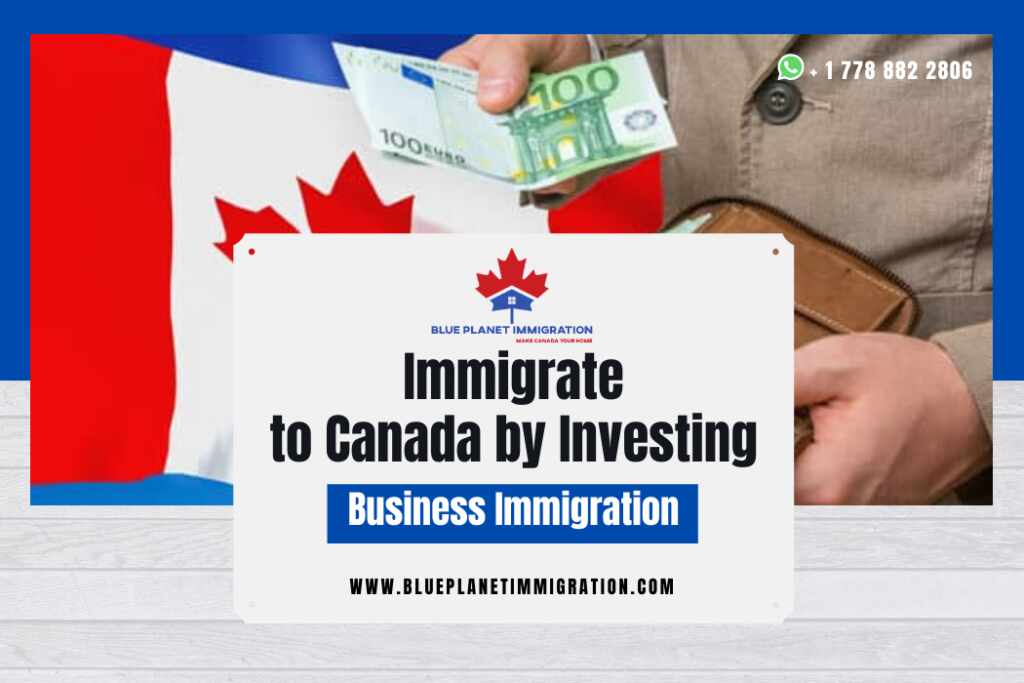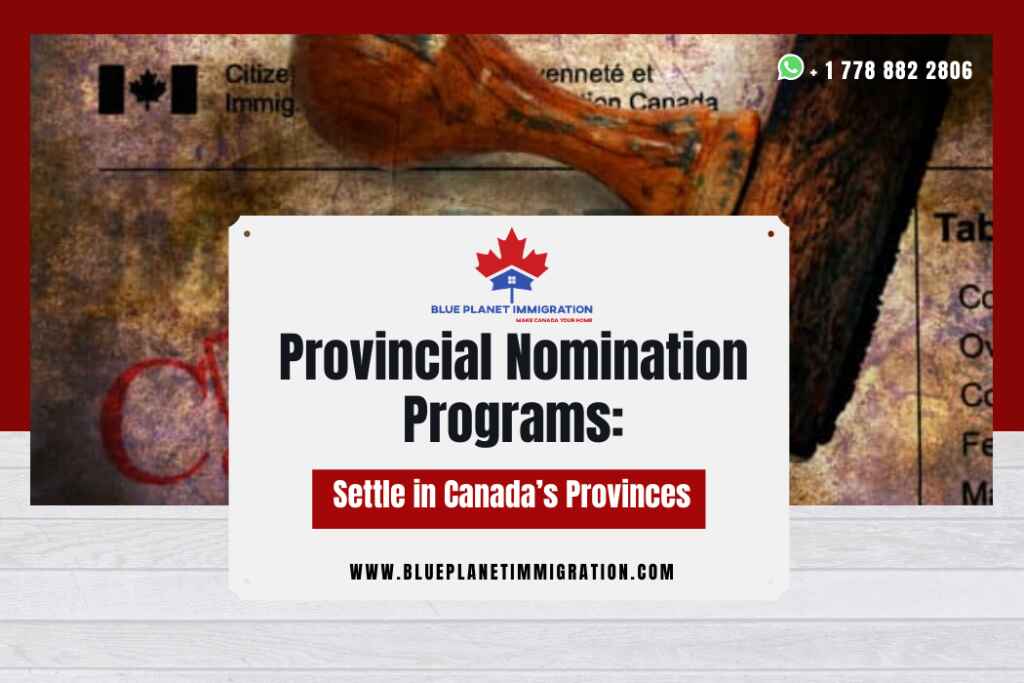Immigrate to Canada by Investing : Business Immigration
Do you wish to immigrate to Canada? Are you planning to apply for business immigration to Canada? It yes, then you need to know the basket of benefits that you will get. Canada is one of the fastest flourishing G20 economies. With its well-planned business friendly environment it has always been the hotspot for the foreign investors. It is a country with the most skilled people available. So, let’s see what other benefits you are going to get:
- 13th most competitive economy and 12th most innovative country in world.
- Investors get market access to 14 countries based on 51 trade agreements.
- Lowest rate of interest on new business investment among G7. METR is 13.7%
- Federal GST is 5%, lowest among OECD.
- Political stability, lowest rate of corruption, Soundest banking system.
- Reduced net worth requirement of applicant to 300000$ and 100000$ for investment.
- No net-worth requirement for certain streams in business immigration.
- The costs of specified clean energy equipment are eligible for full tax write-off the year they are put in use in business.
- The cost of machinery and equipment for processing are eligible for full tax write-off the year they are put in use in business.
- Accelerated Investment incentive for all sectors of economy making large capital investments.
Above all, Canada is a beautiful country with ample benefits for investors and family and that’s the reason people prefer to immigrate to Canada.
Immigration to Canada
When we talk about business immigration to Canada or rather say immigrate to Canada, it is basically a program where the foreign nationals with business or managerial expertise and high net income apply for Canada Immigration Visa. On yearly basis, Canada welcomed approximately 250000 immigrants’ until 2019. The data for the year 2020 is expected to be approx. 350000, as suggested by Statista. To apply for business immigration, there are broadly two ways:
1. Business and Investor immigration: Provisional
Each province or territory runs their own business immigration to Canada program with their specifications known as Provisional Nominee Program (PNP). The stream varies based on entrepreneurial experience and requirement. Also application procedure and the qualifications vary but the successful applicants will receive a provisional nomination. The list of provinces you can migrate to start a business under the scheme is:
- Alberta
- British Columbia
- Manitoba
- New Brunswick
- Nova Scotia
- Ontario
- Quebec
- Yukon
- Northwest Territories
- Prince Edward Island
- Saskatchewan
2. Business and Investor immigration: Federal
When a self-employed person or a working professional is looking forward to establishing his business in Canada or is simply looking to invest his worth in a Canadian firm, then the designed Federal Immigration Programs are applied. These programs are designed to match skills and experience of the person willing to settle in the Province. The Owner/Operator Labour Market Impact Assessment (LMIA) is a path best suited for investors with a low net worth or who lack support of the designated organization.
The Federal scheme has broad three visa programs:
- Entrepreneur start up Visa Program
- Self-Employed persons program
- Owner Operator LMIA
The most popular among the programs is the owner-operator, which can be fulfilled. Considering the following scenario’s :
- New start-up business
- Complete Ownership change in existing Canadian Business
- Pending or Partial purchase in existing business
For all the Business Immigration programs the various points which are considered to help you immigrate are, broadly as under:
- Net worth and investment
- Business Experience
- Education
- Business Plan / Transition Plan
- Language Proficiency
- Exploratory Visit to the Province
- Immigration Interview
Why Immigrate to Canada through business immigration?
- Range of program options
- Range of investment suiting every pocket
- Quick path for immigration
- Only option for individuals above 40 years to immigrate to Canada
- Start earning from day one
- Save on education , child care and other benefits
- NAFT Agreement allow access to business market of USA and Mexico
- Government policies and regulations support new business
- Subsidy schemes benefit the new business startups.
- Excellent opportunities for trade and personal growth.
- Eligibility for Canadian citizenship within three years.
- Above all, the best country in the world to live in.
Conclusion : Canada is an excellent country for a skilled business professional to immigrate and live a happy like. With all the tax benefits, liberalized rules for business, government support and lucrative trade agreements, Canada is surely a place to invest for the business. So if you have decided, you need to find the right consultant for starting process to immigration to Canada through Business / Investing You can get in touch with Blue Planet Immigration who are one of the leading consultants and amongst the most preferred for Business Immigration to Canada. Contact them at info@blueplanetimmigration.com and call at +1-778-882-2806 or +1-778-847-7357 to know further details. Set-up a free consultations appointment / fill up a free evaluation form on their website. They “Make Canada Your Home “.
Provincial Nomination Programs: Settle in Canada’s Provinces
Canada, with its avidly welcoming federal programs, provincial nominee programs and excellent developmental, educational and healthcare systems, has constantly attracted immigrants. Their Provincial Nominee Program is a way of aiding aspiring immigrants, who are not in a position to satisfy the federal immigration requirements , obtain a PR visa. The Canadian territories and provinces that are a part of this program can choose nominees, who’re looking to work and settle in the provinces in consideration. Each different province and territory have a specified targeted occupations or “stream” that they’re looking for, and only those who have the required qualifications can receive a PNP nomination from that province. Some territories may target software professional , others may target media , banking people and some of them may target engineers , management professionals. The list is endless and varies from one province to the other. The application process depends on the stream , your primary occupation and may either be a non-express entry based offline process, or an online process, through the Express Entry system. A medical exam and police verification are mandatory in both the cases.
Offline non-Express Entry based process:
– Applicant must meet the eligibility criteria for the province that nominates them.
– Once the nomination offer is received, a hard-copy of the filled-out application form must be submitted
to the IRCC.
– Mandatory medical and police checks.
– Application processing time is longer than for the Express entry process.
Online Express Entry Process:
This can be done in 2 ways:
A) Directly go to the website of the province or territory you’re interested to settle in, and apply for
a nomination. This can be done when the applicant does not have an Express Entry profile created. If you get offered a nomination, create an Express Entry profile or update an existing one.
B) First create an Express Entry profile and choose provinces or territories you’re looking to settle
in.
If you receive a notification from any province, directly contact them. They’ll require you to apply through the Express Entry stream of that particular place and your PNP nomination will be awarded online.
All nominations offered under Express Entry are called “enhanced nominations” and their processing time will be 6 months or lesser. The provincial nomination process is faster, than it appears to be.
Things to keep in mind:
– The eligibility criteria for each territory or province varies, and can also change from time to time, with no notice.
– The Northern Territory of Nunavut and Quebec does not participate in the PNP.
– The documentation requirements vary from province to province and you need the help of an RCIC so that you do not make mistakes in the documents as that could cause you additional weeks to months to get your nomination.
SUMMARY:
Canada’s Provincial Nominee Program is an excellent initiative by the provincial government, to aid those seeking to work or settle in one of their territories or provinces. It makes it easier to obtain a PR visa from Canada. This can be applied for through both EE and non-EE methods. They follow a Comprehensive Ranking System (CRS), based on which nominees are chosen. Those with the highest CRS scores will be offered nominations first. However, being offered a nomination by one of the provinces or territories gets the applicant an extra 600 points of CRS. The eligibility criteria for the applied province or territory must be met. An Express Entry profile is mandatory ( at one stage or the other ) and needs to be submitted to ensure that the applicant meets the minimum eligibility criteria for Express Entry and the PNP.
Make Canada your home
Canada is a famous country for emigrants. Canada is one of the countries in the world with the best quality of life. Also, Canada has a very varied nature with breath-taking landscapes. The cost of living in Canada as comparable to that in Europe. They can be a bit higher in the big cities but lower in the more rural areas.
Overall, rents in Canada are higher than in Europe. Those who can afford it should, therefore, instead buy an apartment or a house then rent it. French and English are the two official languages of Canada. To emigrate to Canada, you should at least be able to speak and write English. If you want to migrate to the province of Quebec, French is a must. Let’s take a look at the country in detail and get to know about what is life in Canada like.
For whom is Canada suitable for as an emigration country?
Canada, as an emigration country, is particularly interesting for specialists from the medical sector and craftsmen, so-called “skilled workers” and university graduates. Indians have a good reputation as a workforce in Canada and therefore have promising opportunities in the Canadian labour market.
The following professional groups are particularly in demand in Canada immigration:
- Doctors, Nurses, and Nurses
- Artisans, for example, locksmiths, carpenters, bricklayers, and electricians
- Construction Manager
- Engineers
- IT Specialists
- Truck Driver
- Experienced professionals from the Hotel And Catering Trade
In Canada, especially in rural areas, skilled workers such as artisans and medical personnel are often in short supply. There, experienced workers get desperately sought. That’s why the Canadian Immigration Service, Canada Citizenship and Immigration Canada (CIC) – the Department of Citizenship and Immigration – makes it easier for people from these professions to immigrate. The immigration authority has developed a points system for the so-called “skilled worker and professionals,” based on which the suitability of a potential immigrant is determined. An overview of the professional groups treated preferentially in Canada can be found on the Priority Occupation List (POL). The Canadian Embassy can provide further information on visa and immigration regulations.
REQUIREMENTS FOR AN UNLIMITED VISA
To be able to live and work in Canada without restrictions, you need a work permit and a residence permit, i.e., a “permanent residence status.” There are various ways to obtain permanent residence status. Take a look at moving to Canada requirements.
- Due to family reunification:Parents, grandparents, children, or spouses of a Canadian citizen living in Canada can get permanent residence status if the Canadian citizen provides a guarantee for them. It means that he can prove a guaranteed income, and the warranty must be valid for at least ten years.
- If you want to invest in Canada:Self-employed people get a permanent residence status in Canada if they’re going to spend in Canada or start a business. To do this, they must have sufficient capital and demonstrate that they have already successfully operated as entrepreneurs. Also, they are expected to create jobs and be willing to do non-profit, sports, or cultural activities.
- As a Provincial Nominee: In Canada, immigration regulations are not only regulated nationally. Individual provinces have their immigration programs. As with the “skilled worker and professionals” program, this is mainly about skilled workers who get sought after in particular areas.
- Skilled workers class immigration:This is the “skilled worker and professionals” program that uses a point system to determine immigration suitability. For most Indians, this is the most likely way to achieve permanent residence status in Canada. The point system is supposed to calculate the probability that the potential immigrant can start a new life in Canada.

THE SKILLED WORKER AND PROFESSIONALS PROGRAM
The points system of the “skilled worker and professionals” program is made up of different categories. There is a maximum number of points for each group. To be eligible for permanent residence status, the applicant must have at least 67 points. The types include language skills in English and French, work experience and professional qualifications, age, or marital status.
In addition to the points system, other factors need to be met:
- Proof of at least one year of full-time or part-time employment in one of the professions at POL in the past ten years.
- Criminal record certificate
- Evidence of a job offer in Canada. It applies in particular to emigrants whose business does not get listed on the POL.
- Proof of financial reserves of approximately CAD 10,000 for single immigrants or approximately CAD 19,000 for a family with two children.
Those who do not meet the minimum requirements for professional experience or professional qualifications do not get a permanent residence status, regardless of how well they do in the other categories. Three years after permanent residence status has been issued, it is possible to apply for Canadian citizenship.
MOVING TO CANADA: WHAT YOU HAVE TO PAY ATTENTION TO
A move to Canada needs to be well planned. Many things can be regulated in advance from India. Others have to do the emigrant locally in Canada.
WHAT CAN ALREADY BE REGULATED IN INDIA:
- Papers:If you emigrate to Canada, you should deregister from the responsible residents’ registration office in India. The cancellation confirmation is an essential document so that if you need a new passport, for example, you can apply for it at the Indian representation in Canada. It would help if you also had a valid passport and identity card. Other documents, such as a birth certificate or marriage certificate, should also be available to the Canadian authorities. The Indian driving license may only be used initially for a limited time. It’s best to get an international driver’s license before you go to Canada. The Indian driver’s license can then be exchanged for a Canadian driver’s license later on site.
- Pensions and pensions:There are no social security agreements between India and Canada. The lack of social security agreements means that the two countries do not recognize and offset the pension entitlements from the other country. You should check with the Indian Pension Insurance before migration gets in touch to find out about the actual pension rights and to clarify whether you still have to provide proof of pension insurance. In addition to the usual pension in India and private pensions, Canada also has the “Old Age Security” (OAS). It is a statutory pension to which every employee, including immigrants, is entitled from the age of 65. Immigrants receive the premium on a pro-rata basis based on the years spent in Canada until the age of 65.
- If the household items are to emigrate:If you want to take your belongings with you from India to Canada, you should hire a freight forwarder to transport the household items by ship. It is cheapest to book a door to door service. It delivers the freight from the port to the new home in Canada. However, you must be present at the customs port upon arrival in the Canadian port. The import regulations in Canada are stringent. The Canada Border Services Agency provides information on items that may not be imported and customs duties.
WHAT NEEDS TO BE REGULATED IN CANADA:
- Finding a flat:You should look for a unit on the spot in Canada. Since it is more common in Canada to buy houses or apartments than to rent them, the property market for these properties is correspondingly broader. Offers can be found in local newspapers, on notice boards in public buildings, in laundromats, supermarkets, or in free magazines. Real estate is also offered online, for example, at “A Place in the Sun” or at “ReMax “. Of course, you can also hire a broker to find the right one.
- Applying for the Social Insurance Number (SIN):If you want to work in Canada, you need a Social Insurance Number (SIN), which you can apply to the relevant authorities in Canada. Immigrants with permanent residence status are entitled to all social benefits that Canadians can also take advantage of, such as unemployment benefits, social welfare, child benefits, or pensions. The terms and amount of the amounts to be paid can vary widely from province to province and sometimes even from city to city.
- Setting up a bank account:The banking system in Canada is visible. If you want to open an account as an immigrant, in addition to the usual two identification documents (e.g., identity card, social security card, or driver’s license) as well as proof of address (electricity bill or water bill), an employment contract is also required.
- Health Insurance:Canada has the Medicare state health system. Medicare covers all Canadian citizens and immigrants with Canada permanent resident status. Medicare gets financed through taxes. There are no health insurance contributions, except in the provinces of Alberta and British Columbia. Medicare benefits are limited, however. As a result, most Canadians have additional health insurance through their employer and private health insurance in addition to Medicare.
If you are thinking of moving to Canada , please get in touch with Blue Planet Immigration and fill our enquiry form. We will help make Canada your home.




Recent Comments